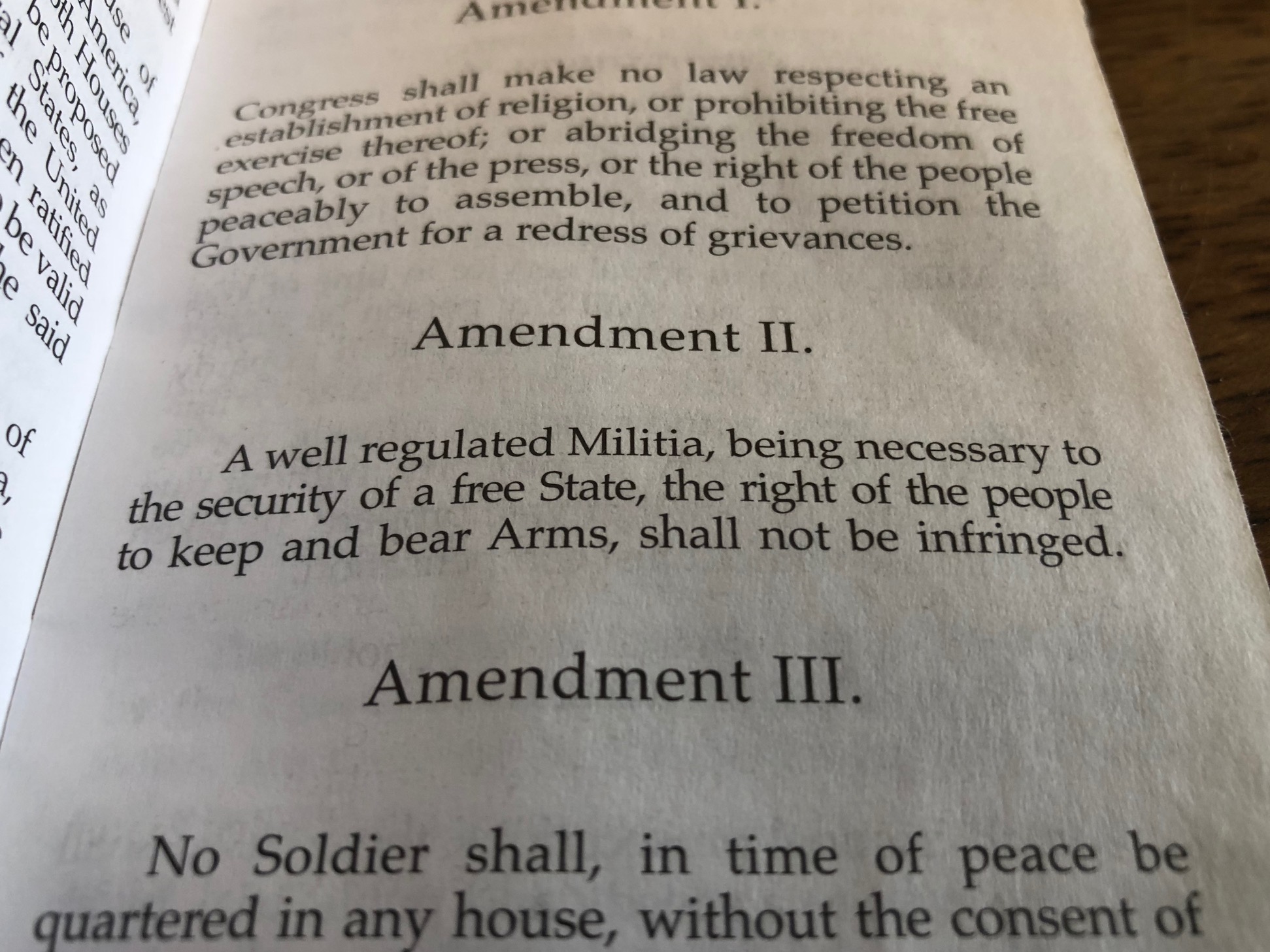Experts Debate Second Amendment’s Effects on Equality, Inequality in the United States
Constitutional scholars Randy Barnett and Carol Anderson discuss how notions of gun ownership have changed — and not changed — since the founding of the country.

The right to bear arms is a right many people hold close. Some view the right as integral for self-defense. Yet, others see it as dangerous, particularly as the epidemic of mass shootings and gun violence only seem to get worse with every passing year.
“What you have to do is begin to dismantle the system of anti-Blackness that creates Black people as a threat, as the default threat in American society.” –Carol Anderson, Emory University
That is what the WDET Book Club is moving its conversation next: the Second Amendment and gun ownership. Detroit Today explores how the notion of owning a gun changed over time, why so many people have historically been left out of gun ownership and what stands in the way of the American people achieving equality concerning the Second Amendment.
Listen: Carol Anderson and Randy Barnett debate how the Second Amendment relates to Black Americans.
Guests:
Carol Anderson is the Charles Howard Candler professor of African American Studies at Emory University. Her latest book is “The Second: Race and Guns in a Fatally Unequal America.”
Anderson says when she looks at the Second Amendment, she focuses on how the fear of an uprising of enslaved people drove the creation of the amendment. “You had in the Virginia constitutional ratification amendment, Patrick Henry and George Mason arguing that the control of a militia that James Madison had put into the Constitution would leave slaveholders defenseless because you could not trust the federal government to organize the militia and send the militia down if there was a massive slave revolt,” she says.
Anderson says adding more guns to a community does not create security for its people. “What you have to do is begin to dismantle the system of anti-Blackness that creates Black people as a threat, as the default threat in American society.”
“If there was trust, if there was not an anti-gun ideology in this country, people might be more accepting of a registry. But because there isn’t … a registry is not trusted.” –Randy Barnett, Georgetown University
Randy Barnett is the Patrick Hotung Professor of Constitutional Law at the Georgetown University Law Center and Director of the Georgetown Center for the Constitution. He is also the co-author of the forthcoming book “The Original Meaning of the 14th Amendment: Its Letter and Spirit.”
Barnett says the right to bear arms has a lot to do with the 14th Amendment if someone is debating a state-level law. “[T]he relevant portion of the Constitution is the 14th Amendment that says, ‘No State shall make or enforce any law, which shall abridge the privileges or immunities of citizens of the United States.’ Among those privileges and immunities was the right to keep and bear arms, which was expressly protected by the Freedmen’s Bureau Act after the Civil War … and the privileges or immunities clause [was] adopted to protect the rights of African Americans to own firearms, particularly in the South.”
Barnett rejects the idea of a gun registry because there are so many people completely against guns in the first place. He says a potential registry would be used to locate and confiscate guns. “If there was trust, if there was not an anti-gun ideology in this country, people might be more accepting of a registry,” he says. “But because there isn’t … a registry is not trusted.”
Web story written by Dan Netter
Join WDET in reading the Constitution.
This summer, we invite you to get involved as we explore our nation’s founding document.
Sign up to get your free pocket Constitution
Trusted, accurate, up-to-date.
WDET strives to make our journalism accessible to everyone. As a public media institution, we maintain our journalistic integrity through independent support from readers like you. If you value WDET as your source of news, music and conversation, please make a gift today.

